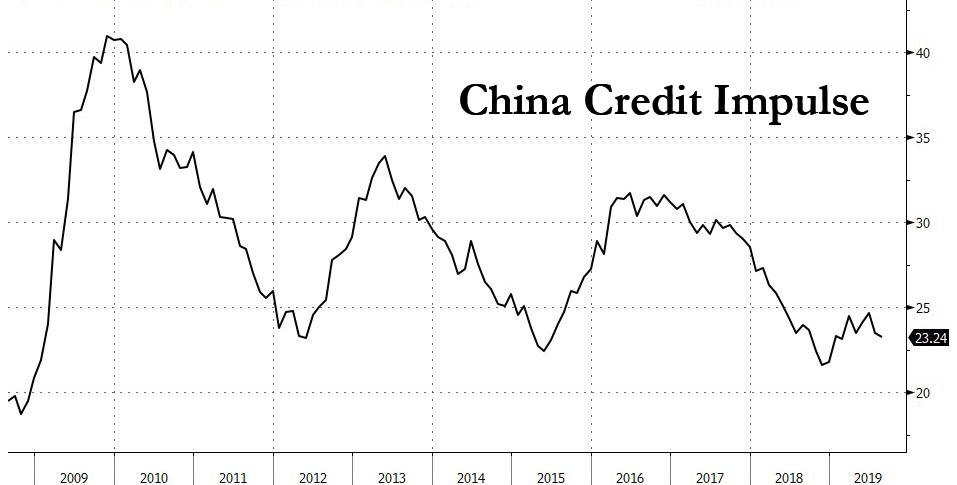“Close To A Standstill”: IMF Warns Global Growth Will Be Cut To Lowest Since Lehman
Don’t expect any good news next week when the IMF holds its annual meeting and releases its latest World Economic Outlook report due on October 15.
According to the IMF’s new head, Bulgarian Kristalina Georgieva, the monetary fund will again cut its growth forecast for both 2019 and 2020; as a reminder back in July, the IMF again cut its projection for 2019 GDP growth to 3.2% this year and 3.5% next year, its fourth downgrade since last October, and the lowest since the financial crisis amid ever-escalating trade war. In fact, according to Georgieva, who apparently was brought in to take the blame for Lagarde’s disastrous legacy, global trade growth “is close to a standstill”, which last time we checked was 0%.
It means we are about about to have a new entry in the “worst since Lehman” category.
By now it is no secret to anyone that everyone – global institutions, economists and investors – have blamed the U.S.-China tariff war as the main reason for slowing global growth (and catalyst behind upcoming QE). The trade tensions have partly caused manufacturing to tumble and weakened investment, creating a “serious risk” of spillover to other areas of the economy like services and consumption, Georgieva said on Tuesday according to Bloomberg.
“The global economy is now in a synchronized slowdown,” she said, noting that the fund estimates that 90% of of the world is seeing slower growth. This is a huge change to the global economy from two years ago, when growth was accelerating across three-quarters of the globe in a synchronized upswing.
To be sure, the IMF – as usual – is among the last to recognize what was already obvious to its peers. The OECD cuts its own forecast last month; on Monday, World Bank President David Malpass said that the lender is also preparing to downgrade its assessment from a projection of 2.6% it made in June.
As one would expect, the IMF’s admission of the sad state of affairs is not without a hidden motive, in this case getting Germany to issue more debt and prop up Europe’s flailing economy.
A deeper slowdown would require more fiscal support, Georgieva said. “If the global economy slows more sharply than expected, a coordinated fiscal response may be needed,” she said. “We are not there” but it’s better to be too early with it than late.
“Monetary and financial policies cannot do the job alone. Fiscal policy must play a central role,” she said.
Of course, the IMF was quick to blame Trump and Brexit for the slowdown: “Uncertainty — driven by trade but also by Brexit, and geopolitical tensions — is holding back economic potential,” Georgieva said. Not only that, but the economic rifts could “last a generation” with possible shifts such as broken supply changes and siloed trade.
What it failed to mention is that the real reason for the economic slowdown has nothing to do with Trump however, and everything to do with China’s untenable debt load and Beijing’s resulting inability to boost the credit impulse which on every prior occasions succeeded in pushing the world away from the verge of recession. Well, not this time.
We will spare readers the obvious commentary of what would happen to the world’s ability to generate another credit impulse if the developed economies actually followed the IMF’s advice, and issue even more debt.
Tyler Durden
Tue, 10/08/2019 – 12:10
via ZeroHedge News https://ift.tt/2LYusKf Tyler Durden